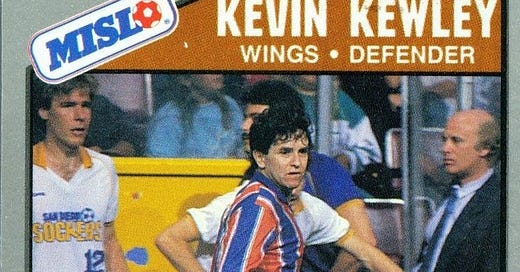Not too long ago, on a Thursday evening, if you lingered near a condominium patio on the east side of Wichita, Kansas, and filtered out the sounds of 1960s British Invasion rock n’ roll, you might have sworn you could hear two Scousers carrying on about soccer: one accent notably thicker than the other.
Kevin “The Tiger” Kewley, former midfielder for Liv…
Keep reading with a 7-day free trial
Subscribe to MISL 1980s: The Story of Indoor Soccer to keep reading this post and get 7 days of free access to the full post archives.



